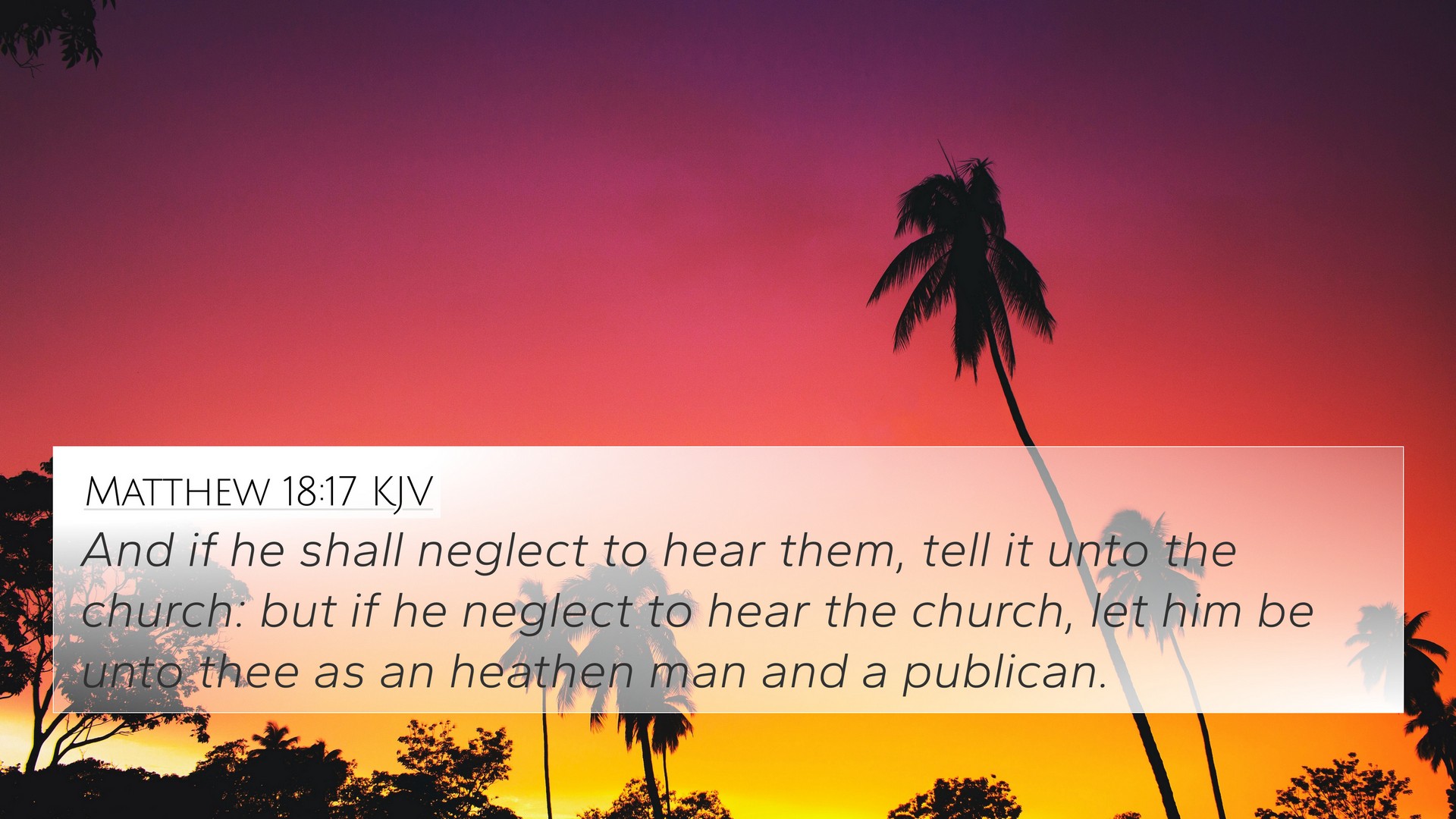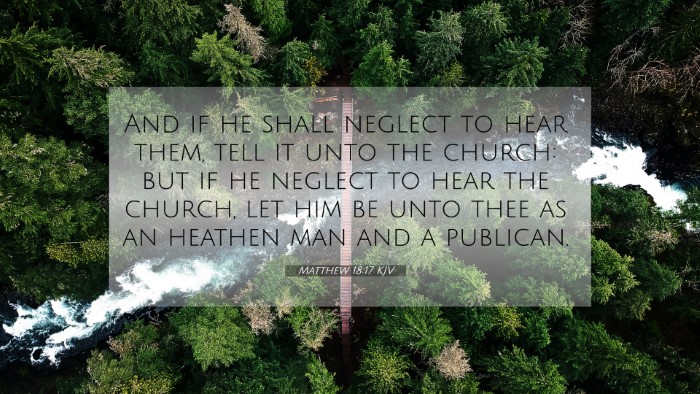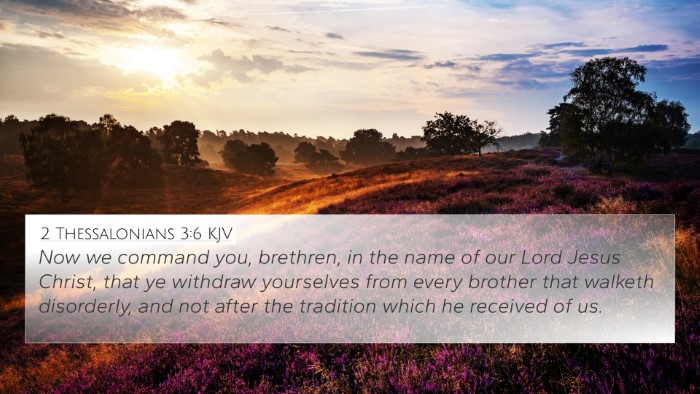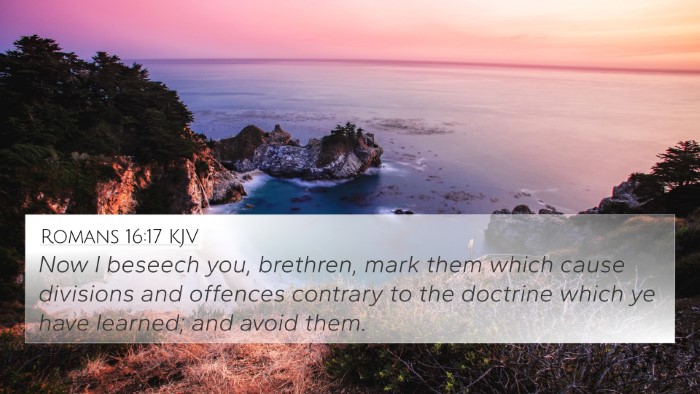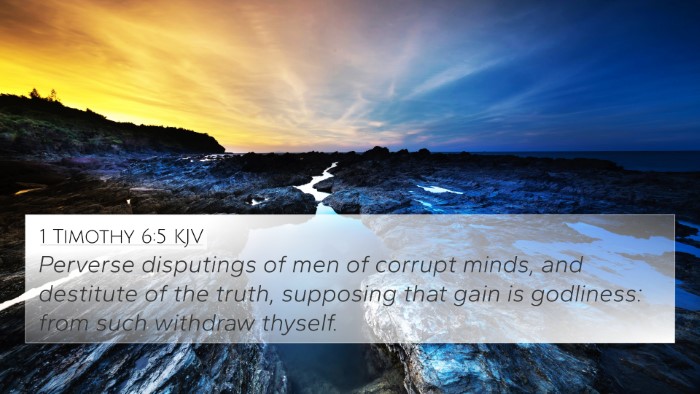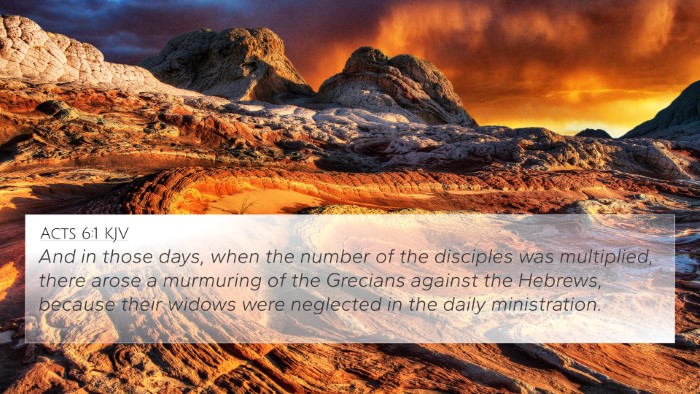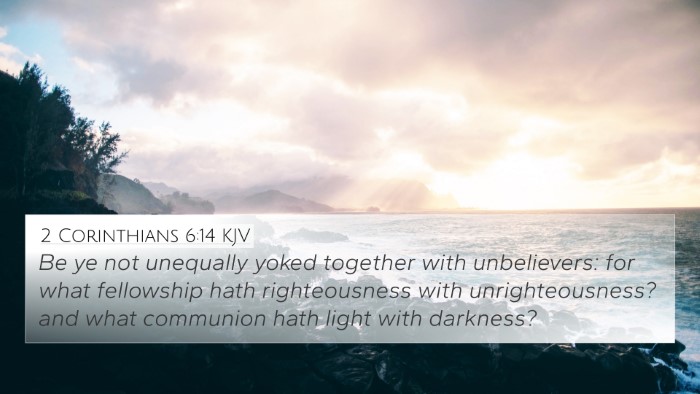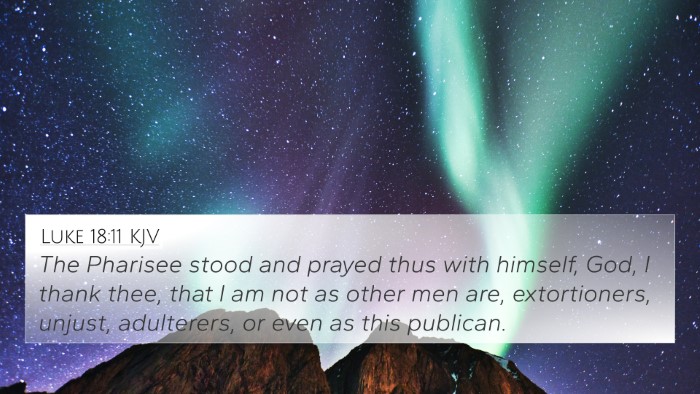Understanding Matthew 18:17
Verse: "And if he shall neglect to hear them, tell it unto the church: but if he neglect to hear the church, let him be unto thee as a heathen man and a publican." (Matthew 18:17)
Meaning and Interpretation
This verse falls within the context of Jesus' teachings on church discipline and reconciliation. Matthew Henry points out that the process described involves several steps, allowing for personal confrontation followed by escalating accountability.
Albert Barnes elaborates on the significance of the church in the process, highlighting that in cases where individual efforts fail, collective ecclesiastical intervention is necessary. This underscores the community's role in maintaining integrity and fostering restoration.
Adam Clarke also notes that the phrase "as a heathen man and a publican" illustrates a profound separation from communal ties, indicating a serious status change for an unrepentant individual—a severing from not just the church community but also the covenant community of God's people.
Theological Insights
The concept of church discipline as a means of restoration rather than mere punishment is emphasized throughout scripture. By addressing sin within the community, the intention is to lead the sinner back to a place of right relationship with God.
This verse clearly outlines a framework for handling grievances and challenges within the church, illustrating the balance between grace and accountability.
Cross-references
- Matthew 18:15-16 - The preceding verses explain the steps to take when confronting a brother in sin.
- 1 Corinthians 5:11-13 - Paul urges the church to avoid associating with anyone who claims to be a believer but lives in unrepentant sin.
- Galatians 6:1 - This verse encourages restoration with a spirit of gentleness when confronting someone caught in sin.
- Titus 3:10-11 - Paul advises to reject a divisive person after a first and second admonition.
- 2 Thessalonians 3:14-15 - Paul instructs not to associate with those who do not obey the word to shame them into repentance.
- Proverbs 17:15 - "He who justifies the wicked and he who condemns the just, both of them alike are an abomination to the LORD." This highlights the importance of just discernment.
- Romans 16:17 - Paul warns to watch out for those who cause divisions and obstacles contrary to the teaching received.
Applications for Today
This passage offers vital insights into how communities of faith should engage with issues of sin and moral failure. It provides a clear roadmap for reconciling relationships while maintaining holiness within the church.
Practical Steps for Church Discipline
According to the teachings extracted from this verse and others, the following outline may guide current congregational practices:
- 1. Private Confrontation: Speak to the individual privately about their wrong.
- 2. Witnesses: If they refuse to listen, take one or two others to establish the matter (Matthew 18:16).
- 3. Church Involvement: If they still refuse, bring the matter before the church.
- 4. Finality of Excommunication: Only if they resist listening to the church should one consider them as a heathen or outcast (Matthew 18:17).
Meditation and Reflection
This scripture invites reflection on the nature of community and accountability in faith practices. Examine your own heart regarding the process of addressing sin in yourself and in others, discerning when to engage and when to stand apart.
Exploring Further: Thematic Connections
Matthew 18:17 interacts with various themes across scripture, resembling sentiments expressed throughout the Old and New Testaments regarding community and purity. This creates a tapestry of understanding that enriches our approach to church life. Consider how this verse interacts with:
- Restoration (Psalm 51, Galatians 6:1)
- Judgment (Matthew 7:1-5)
- Community Integrity (Corinthians, Titus)
- Forgiveness and Reconciliation (Luke 17:3-4)
Conclusion
In summary, Matthew 18:17 serves as a crucial instruction for the church on how to handle interpersonal issues. By applying its principles, congregations can engage in healthy conflict resolution practices while aiming for the ultimate goal of reconciliation and preservation of community faithfulness.
